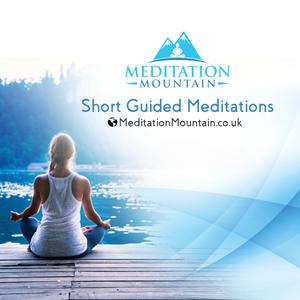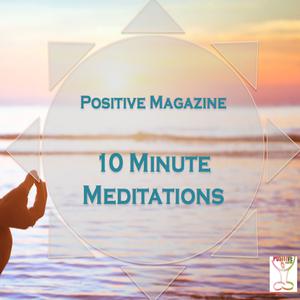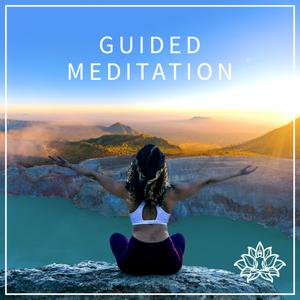
Meditation Mountain
Guided Meditation
Welcome to Meditation Mountain. Here we produce guided meditations to help you reduce stress, lower anxiety and improve sleep. Our unique guided meditations range from 10 minute to 20 minute meditations. We focus on mindfulness, visualizations and affirmations on a range of subjects such as meditations for stress, anxiety and depression. Meditation benefits are well documented but for those new to meditation we have multiple meditations for beginners including short guided meditations on positive energy, acceptance and forgiveness.Our goal here at Meditation Mountain is to make a positive difference in this world one step at a time. It's so easy to become overwhelmed, stressed, or feel lost. Our hopes are that you use these short guided meditations to help reduce your stress, relieve your anxiety and take a few minutes out of your day to meditate on how you are inside. Taking a moment for yourself to recharge through meditation and using it as a tool to strengthen your mind.
- 14 minutes 28 seconds15 Minute Body Scan Meditation to Reduce Frustration and Increase CalmFinding methods to regain a sense of calm and balance is essential. Body scan meditation, a component of mindfulness practice, offers a powerful tool to alleviate these stressful emotions and restore inner peace. Body scan meditation involves a mental sweep of the body, focusing attention on different parts sequentially from the toes to the top of the head. This practice encourages participants to notice sensations within the body without judgment or reaction, fostering a deep state of relaxation and awareness. Reduction in frustration often arises from our reactions to unmet expectations or uncontrollable circumstances. Body scan meditation helps by shifting focus from external situations to internal sensations. This shift encourages a more measured, mindful reaction to stressors, significantly lowering the intensity of frustration. By regularly practicing body scanning, you can learn to approach frustrating situations with a new perspective, focusing on physical sensations rather than the emotions triggered by external events. The methodical nature of body scan meditation slows down the mind and brings attention to the present moment. This focus on the now, combined with deep breathing often integrated into the practice, calms the nervous system. The physical relaxation induced by the meditation can also signal the brain to release stress-reducing hormones, such as serotonin and dopamine, enhancing feelings of well-being and calm. As practitioners scan their bodies, they become more attuned to subtle cues and sensations, increasing body awareness. This heightened awareness can lead to better recognition of stress signals early on, enabling effective intervention before emotions become overwhelming. Enhanced self-awareness aids in emotional regulation, allowing individuals to manage their feelings more effectively. The relaxing effect of body scan meditation is an excellent remedy for insomnia and restless nights. By calming the mind and body before bedtime, you can transition into sleep smoothly. Moreover, the reduction in overall anxiety levels contributes to improved sleep quality, leading to better overall health and mood. One of the most appealing aspects of body scan meditation is its simplicity and flexibility. It can be practiced anywhere, at any time, without special equipment or extensive training. Whether it’s a few minutes during a lunch break or a longer session at home, even short periods of body scan meditation can provide significant benefits. To begin practicing body scan meditation, find a quiet space where you can relax without interruptions. You can lie down, sit, or even stand if preferred. Start by focusing on the breath to settle your mind and then slowly move your attention through each part of your body. Acknowledge any sensations, thoughts, or emotions that arise, but let them pass without judgment. In conclusion, body scan meditation offers a straightforward, effective way to manage frustration and enhance calm. Its benefits extend beyond immediate relaxation to improved emotional resilience and well-being. By incorporating this practice into your routine, you can step away from daily stressors and towards a more peaceful and mindful state of being.23 April 2024, 6:00 am
- 11 minutes 11 secondsCalming Meditation to Find Inner Peace and AcceptanceWhen connecting with our inner selves we use techniques like mindfulness, focusing the mind on a particular object, thought, or activity, to train our attention and awareness, in order to achieve a mentally clear and emotionally calm state. One of the primary benefits of meditation is the path it paves to inner peace. In our daily lives, we often find ourselves overwhelmed by external demands such as work, relationships, expectations. These can lead to a cluttered mind, filled with stress and anxiety. Meditation allows us to step back and observe our thoughts rather than being controlled by them. By doing so, we learn to detach from disturbances around us, creating a peaceful mental environment. As you practice regularly, you develop the ability to maintain this sense of calm throughout your daily activities. Alongside fostering peace, meditation is crucial for enhancing self-acceptance. Many of us struggle with critical thoughts towards ourselves and our actions. Through meditation, particularly mindfulness, we learn to observe our thoughts and feelings without judgment. This practice teaches us to accept ourselves as we are, acknowledging our feelings but not being defined by them. Over time, this acceptance extends beyond the self to others, promoting empathy and compassion in our interactions. Scientific studies have consistently shown that meditation can significantly reduce stress and anxiety. Techniques like focused attention and controlled breathing help regulate the stress response system in our body. This not only diminishes day-to-day stress but also improves our resilience against new stressors. The reduced anxiety levels contribute to a more peaceful and accepting mindset, enhancing overall well-being. Meditation also sharpens concentration and mindfulness, which contribute to inner peace. Through regular meditation you can improve your ability to focus and reduce mind wandering. This increased focus helps you perform better in all aspects of life, from work to personal relationships. Mindfulness, on the other hand, enhances your present-moment awareness, allowing you to savor life's pleasures as they occur, without attachment to the past or future worries. Consistent meditation offers a gateway to finding inner peace and acceptance. It helps us navigate the complexities of life with a calmer, more focused mind and a compassionate heart. I encourage each of you to dedicate a few minutes daily to meditation. Over time, you will likely notice profound changes not only in your mental and emotional state but in your overall approach to life.15 April 2024, 6:00 am
- 10 minutes 22 secondsBuild Self-Confidence and Self-Belief through Guided MeditationIn the quest for personal growth and self-improvement, building self-confidence and self-belief emerges as a pivotal cornerstone. These twin pillars not only support our well-being but also propel us towards achieving our fullest potential. In the maze of self-help strategies, guided meditation stands out as a serene yet powerful tool in nurturing confidence building qualities. Let's talk about the transformative power of guided meditation in fostering self-confidence and self-belief, offering insights and practical guidance for anyone embarking on this journey. Self-confidence and self-belief are not merely about outward expressions of assurance but are deeply rooted in our internal dialogue. The narratives we tell ourselves, the beliefs we hold about our capabilities, and the way we react to our inner critic play a significant role in shaping these attributes. Guided meditation offers a pathway to explore and reframe these internal landscapes. By guiding the mind through imagery, affirmations, and mindfulness techniques, you can begin to challenge and transform limiting beliefs, fostering a stronger sense of self-confidence. Regular practice helps in recognizing and silencing the harsh, critical voice within. By replacing negative thoughts with positive affirmations, we can cultivate a more compassionate and supportive inner dialogue. Visualization techniques within guided meditations allow us to picture ourselves succeeding, achieving goals, and embodying confidence. This mental rehearsal primes the mind and body to act in alignment with these visualized outcomes. Mindfulness meditation teaches the art of being present and fully engaged with the current moment. This practice reduces anxiety and stress, which are common barriers to self-confidence and self-belief. Guided meditations often incorporate breathing exercises and relaxation techniques that aid in emotional regulation. By learning to manage emotions effectively, we can approach challenges with a calm and confident demeanor. Embarking on this journey requires consistency and patience. Here are practical steps to integrate guided meditation into your daily routine: Create a Routine: Dedicate a specific time each day for your practice. Morning sessions can set a positive tone for the day, while evening sessions can help in reflecting and unwinding. Create a Conducive Environment: Find a quiet, comfortable space where you can relax without interruptions. Use headphones for a more immersive experience. Practice Regularly: Consistency is key. Even a few minutes daily can lead to significant changes over time. Reflect and Journal: After each session, spend a few moments reflecting on your experience. Journaling can help in tracking progress and insights gained through your practice. Building self-confidence and self-belief is a journey that requires patience, practice, and persistence. Guided meditation offers a gentle yet powerful tool in this transformative process. By committing to regular practice, you can unearth and nurture the wellspring of confidence and belief within, paving the way for personal growth and fulfillment. Embrace this journey with an open heart and mind, and witness the unfolding of your true potential.8 April 2024, 10:29 am
- 19 minutes 58 seconds20 Minute Meditation to Remove Negative Thoughts and FeelingsMeditation is a powerful tool for enhancing mental and emotional well-being. The practice has gained mainstream acceptance, partly due to a growing body of scientific research that underscores its benefits. Among these, the ability of meditation to help us manage and remove negative thoughts and feelings. Meditation aids in the cultivation of a more positive and resilient mindset, enhancing our overall quality of life. Negative thoughts and feelings, such as anxiety, stress and depression, can significantly impact our quality of life. They can distort our perception of reality, interfere with our ability to focus, and impair our decision-making abilities. Over time, chronic negativity can lead to more severe mental health issues and adversely affect physical health. Meditation offers a proactive approach to managing these challenges, helping to break the cycle of negative thought patterns and emotional responses. Meditation involves practices that encourage heightened awareness and focused attention. Although there are various forms of meditation, most share common elements, such as deep breathing, mindfulness, and the cultivation of a non-judgmental attitude towards our own thoughts and feelings. By engaging in these practices, we can learn to observe our thoughts and emotions without becoming entangled in them, gaining greater clarity and perspective. Meditation builds an enhanced state of self-awareness, allowing us to recognize negative thought patterns as they arise. This awareness is the first step toward interrupting and ultimately changing these patterns. Numerous studies have shown that meditation can significantly reduce stress. By promoting relaxation and decreasing the body's production of stress hormones, meditation can help mitigate the physiological effects of negative emotions. Regular meditation practice has been linked to improved emotional regulation. This means that people who meditate regularly are better equipped to manage their emotional responses to challenging situations, reducing the likelihood of being overwhelmed by negative feelings. Meditation enhances the brain's ability to concentrate and maintain attention. This improved focus can help us redirect our mind away from negative thoughts, offering a sense of mental clarity and calm. Over time, meditation can contribute to a more positive outlook on life. By reducing the prevalence of negative thoughts and feelings, we may experience an increase in positive emotions, leading to greater overall well-being. Incorporating meditation into our daily routine does not require extensive time commitments or special equipment. Even just a few minutes of meditation each day can yield significant benefits. Short guided meditations like the many we provide here can help both immediately and over time. Meditation is a powerful and accessible tool for combating negative thoughts and feelings. Through increased self-awareness, stress reduction, enhanced emotional regulation, improved concentration, and a boost in positivity, meditation can significantly enhance mental and emotional well-being as we learn to navigate and transform our internal landscape.1 April 2024, 6:00 am
- 10 minutes 18 secondsBurnout Relief Meditation ~ Reverse Feelings of Stress, Exhaustion and OverloadBurnout due to work, family, social commitments or just life in general has become an all too common experience for many of us. Constant demands can leave us feeling overwhelmed, exhausted, and mentally drained. Meditation is not just a trendy buzzword; it's a proven practice that has been used for centuries to promote mental, emotional, and physical well-being. Through various techniques such as mindfulness meditation, loving-kindness meditation, and body scan meditation, we can learn to quiet the mind, calm our bodies, and reduce stress levels. One of the primary ways meditation helps combat burnout is by promoting relaxation and stress reduction. When we're stressed, our bodies enter into a state of heightened arousal, triggering the release of stress hormones like cortisol and adrenaline. Over time, chronic stress can lead to physical and mental exhaustion, contributing to burnout. Meditation works by activating the body's relaxation response, which counteracts the effects of stress and promotes feelings of calmness and tranquility. Moreover, meditation teaches us to observe our thoughts and emotions without judgment. Often, burnout is fueled by negative thought patterns and self-critical beliefs. Regular meditation can help us develop greater self-awareness and perspective, allowing us to challenge and reframe unhelpful thought patterns. This shift in mindset can be transformative, empowering us to approach challenges with greater resilience and optimism. Meditation fosters a deeper connection between the mind and body. Many people experiencing burnout may feel disconnected from their bodies, experiencing symptoms such as tension, fatigue, and physical discomfort. By practicing techniques like body scan meditation, we can cultivate a greater awareness of bodily sensations and learn to release tension and stress held within our bodies. This heightened awareness promotes relaxation and enhances our overall well-being. Another key benefit of meditation is its ability to improve emotional regulation and resilience. Burnout often involves feeling overwhelmed by emotions and struggling to cope with life's challenges. Meditation teaches us to observe our emotions with curiosity and compassion, rather than reacting impulsively or becoming overwhelmed by them. Over time, this leads to greater emotional stability and resilience in the face of stress. Meditation helps us cultivate a sense of purpose and meaning in our lives. Burnout often arises when we feel disconnected from our values and passions, trapped in a cycle of routine and obligation. Through practices like loving-kindness meditation and gratitude meditation, we can cultivate a deeper sense of connection with ourselves and others, fostering feelings of fulfillment and purpose. By promoting relaxation, self-awareness, emotional regulation, and a sense of purpose, meditation provides a holistic approach to well-being that can transform lives. Whether practiced for a few minutes a day or integrated into daily life, meditation offers a pathway to greater peace, resilience, and vitality.25 March 2024, 7:00 am
- 10 minutes 38 secondsGuided Meditation for Dealing with Grief and LossDealing with grief and loss is a deeply personal journey, one that often leaves us feeling isolated and alone. Whether we've lost a loved one, a job, a relationship, or something else significant, the pain can be overwhelming. It's essential to recognize that everyone copes with grief differently, and there is no right or wrong way to navigate through it. It's important to explore the key points to help you cope with grief and loss: the importance of love and connection, acknowledging the loss, and the power of movement and exercise. Firstly, let's address the importance of love and connection in the grieving process. When we experience loss, it's natural to feel a sense of isolation and loneliness. However, it's crucial to reach out to others for support. Whether it's friends, family members, support groups, or a therapist, connecting with others who understand and empathize with your pain can provide immense comfort. Expressing your grief openly and honestly can be cathartic, whether through conversations with loved ones or by journaling your thoughts and feelings. Remember, you don't have to go through this alone, and allowing yourself to lean on others for support is a sign of strength, not weakness. Secondly, it's essential to acknowledge the loss without trying to diminish it in any way. Grief is a complex and multifaceted emotion that can manifest in various ways, including sadness, anger, guilt, and even physical pain. Suppressing or denying these feelings only prolongs the healing process. Instead, give yourself permission to fully experience and express your emotions. Allow yourself to cry, scream, or simply sit quietly with your feelings. It's okay to feel overwhelmed at times, and it's essential to be gentle and compassionate with yourself as you navigate through the ups and downs of grief. Lastly, don't underestimate the power of movement and exercise in coping with grief. We often carry our grief in our bodies, which can manifest as tension, stiffness, or even physical pain. Engaging in regular physical activity can help release pent-up emotions and promote a sense of well-being. Whether it's going for a walk, practicing yoga, or engaging in a more vigorous workout, find an activity that feels good for you and allows you to connect with your body. Pay attention to how you feel during and after exercise, noticing any shifts in your mood or energy levels. You may be surprised at how powerful movement can be in helping you process and cope with grief. Dealing with grief and loss is a challenging and often painful experience. However, focusing on the importance of love and connection, acknowledging the loss, and incorporating movement and exercise into your healing journey, you can find ways to navigate through the pain and find moments of peace and solace along the way. Remember to be patient and compassionate with yourself as you grieve, and know that healing takes time. You are not alone, and there is support available to help you through this difficult time.18 March 2024, 7:00 am
- 15 minutes 15 secondsSelf Love Meditation ~ Build Self Worth and Self EsteemSelf-love is a foundational aspect of our well-being. Yet, in a world that often emphasizes achievement and comparison, nurturing self-worth and self-esteem can feel like an uphill battle. This is where self-love meditation comes in as a powerful tool for building and reinforcing a positive self-image. Self-love meditation is a practice that involves directing loving-kindness, compassion, and acceptance towards yourself. It's about cultivating a deep sense of appreciation and care for who we are, flaws and all. Through regular practice, self-love meditation can yield a host of benefits that extend beyond the meditation cushion and into our everyday lives. One of the primary benefits of self-love meditation is the enhancement of self-worth. When we engage in loving-kindness towards ourselves, we reaffirm our inherent value as human beings. We learn to recognize and honor our strengths, talents, and unique qualities, fostering a greater sense of self-respect and worthiness. This shift in perception can be transformative, leading to increased confidence and resilience in the face of life's challenges. Similarly, self-love meditation can bolster self-esteem by helping us develop a more compassionate and forgiving attitude towards ourselves. Often, our self-esteem takes a hit when we internalize criticism or judgments from others, or when we hold ourselves to unrealistic standards. Through meditation, we can cultivate a gentler inner dialogue, replacing self-criticism with self-compassion. By acknowledging our imperfections with kindness and understanding, we free ourselves from the burden of perfectionism and self-doubt, allowing our self-esteem to flourish. Moreover, self-love meditation can contribute to greater emotional well-being and mental health. Research has shown that practicing self-compassion is associated with lower levels of anxiety, depression, and stress. By learning to befriend ourselves and treat ourselves with the same warmth and care we would offer to a loved one, we create a reservoir of inner strength and resilience. This enables us to navigate life's ups and downs with greater equanimity and grace. In addition to its psychological benefits, self-love meditation can also have profound effects on our relationships with others. When we cultivate a deep sense of self-love, we become less dependent on external validation for our sense of worth and fulfillment. This allows us to engage in healthier, more authentic connections with others, based on mutual respect and understanding rather than neediness or insecurity. By filling our own cup with self-love, we have more love to give to those around us, fostering deeper and more meaningful relationships. Incorporate self-love meditation into your life by bringing your awareness to your breath, allowing it to guide you into a state of relaxation and presence. Using a combination of affirmations, deep breathing and visualizations to foster feelings of love and compassion, embracing yourself exactly as you are. Practice this meditation regularly and watch as the seeds of self-love you sow blossom into a garden of inner peace and empowerment. Self-love meditation is a powerful practice for building self-worth and self-esteem. By cultivating a deep sense of love and acceptance towards ourselves, we can transform our relationship with ourselves and with the world around us. Through regular practice, we can unlock the door to a life filled with greater joy, resilience, and fulfillment. So, take a moment today to shower yourself with the love and kindness you deserve, and watch as it reverberates throughout your life, illuminating the path to a brighter, more compassionate future.11 March 2024, 7:00 am
- 10 minutes 27 secondsRelax and Fall Asleep in Minutes ~ Guided Meditation for Sleep
So many people find themselves grappling with poor sleep quality, leading to a long list of health problems. Meditation has many known and unknown benefits to help our sleep quality almost instantly. Meditation, an ancient practice with roots in various spiritual and cultural traditions, has gained widespread recognition for its ability to induce a state of deep relaxation and promote overall well-being. When it comes to sleep, its benefits are particularly remarkable. At the heart of meditation lies the cultivation of mindfulness, the practice of being fully present in the moment without judgment. By engaging in mindfulness meditation, we can learn to observe our thoughts and emotions with detachment, thereby reducing the mental chatter that often keeps us awake at night. As the mind becomes quieter, it becomes easier to let go of worries and anxieties, paving the way for a peaceful transition into sleep. Stress is a leading cause of sleep disturbances, as heightened levels of cortisol, the body's primary stress hormone, can disrupt the natural sleep-wake cycle. Meditation acts as a potent antidote to stress by activating the body's relaxation response. Through deep breathing techniques and guided imagery, you can lift tension in both the body and mind, creating the ideal conditions for restorative sleep. Consistency is key when it comes to establishing healthy sleep habits, and meditation can play a pivotal role in this. By incorporating meditation into your nightly routine, you signal to your body that it's time to unwind and prepare for sleep. Over time, this consistent practice helps regulate your circadian rhythms, making it easier to fall asleep and wake up feeling refreshed. Quality trumps quantity when it comes to sleep, and meditation has been shown to enhance the depth and restfulness of sleep. Studies have demonstrated that regular meditation can increase the duration of REM (rapid eye movement) sleep, the stage associated with dreaming and cognitive processing. Additionally, those who meditate report waking up feeling more refreshed and rejuvenated, indicating a higher quality of sleep overall. For those struggling with insomnia, meditation offers a beacon of hope. Mindfulness-based interventions, such as mindfulness-based stress reduction (MBSR) and mindfulness-based cognitive therapy (MBCT), have been shown to be effective in reducing insomnia symptoms and improving sleep quality. By addressing the underlying psychological factors contributing to insomnia, meditation empowers individuals to break free from the cycle of sleeplessness and reclaim their ability to rest peacefully. Gratitude is a powerful antidote to restlessness and discontentment, and meditation can help cultivate this mindset. By fostering a sense of gratitude for the present moment and all its blessings, meditators can shift their focus away from worries about the past or future, allowing them to embrace a sense of peace and contentment that is conducive to sleep. By quieting the mind, reducing stress, regulating sleep patterns, enhancing sleep quality, overcoming insomnia, and cultivating gratitude, meditation provides a holistic approach to achieving restorative slumber. As you embark on your journey towards better sleep, remember to embrace the practice of meditation as a cherished ally in your quest for inner peace and rejuvenation.
4 March 2024, 7:00 am - 10 minutes 53 secondsRelaxing Meditation to Lower Blood Pressure and Slow Heart Rate
One of the most significant consequences of chronic stress is the impact it has on our cardiovascular health. Elevated blood pressure and heart rate are common indicators of the body's response to stress, and if left unchecked, they can lead to serious health complications such as heart disease and stroke. Fortunately, meditation has been shown to effectively lower blood pressure and heart rate. During meditation we can train the mind to achieve a state of focused attention and inner calm. Through techniques such as mindfulness, transcendental meditation, and loving-kindness meditation, you can cultivate a sense of relaxation and serenity that counteracts the effects of stress on the body. Numerous scientific studies have demonstrated the profound benefits of meditation for cardiovascular health, with consistent findings indicating its ability to reduce both blood pressure and heart rate. One of the primary ways in which meditation lowers blood pressure is by inducing a state of deep relaxation that counteracts the body's stress response. When we experience stress, the sympathetic nervous system initiates the "fight or flight" response, releasing stress hormones such as cortisol and adrenaline that increase blood pressure and heart rate. By engaging in meditation, we activate the parasympathetic nervous system, which promotes a relaxation response characterized by decreased heart rate, slowed breathing, and reduced muscle tension. This shift from the stress response to the relaxation response helps to lower blood pressure and promote overall cardiovascular health. Moreover, meditation has been shown to improve the function of the endothelium, the thin layer of cells that line the interior surface of blood vessels. Research suggests that regular meditation practice enhances endothelial function, leading to improved blood flow and lower blood pressure over time. In addition to its direct effects on blood pressure and heart rate, meditation also helps to address underlying risk factors for cardiovascular disease such as obesity, inflammation, and insulin resistance. By reducing stress levels, meditation can decrease the production of cortisol, a hormone that contributes to weight gain and metabolic dysfunction. Furthermore, studies have shown that meditation has anti-inflammatory effects on the body, which can help to reduce the risk of developing chronic diseases such as heart disease. The benefits of meditation for cardiovascular health extend beyond the physical realm to encompass psychological well-being as well. Chronic stress not only takes a toll on the body but also contributes to mental health issues such as anxiety and depression, which are themselves risk factors for heart disease. Meditation promotes emotional resilience and psychological balance, empowering individuals to cope more effectively with life's challenges and reducing the psychological burden that contributes to elevated blood pressure and heart rate. Meditation offers a holistic approach to lowering blood pressure and heart rate, addressing both the physiological and psychological factors that contribute to cardiovascular disease. By cultivating a state of relaxation and mindfulness, you can harness the power of your own mind to promote heart health and overall well-being. Incorporating meditation into your daily routine can be a simple yet powerful way to protect your heart and embrace a life of greater peace and health.
26 February 2024, 7:00 am - 14 minutes 58 secondsMindfulness Meditation for Overthinking
It's common to find ourselves caught in the relentless cycle of overthinking. Our minds race with worries about the past or future, leaving us feeling anxious, stressed, and overwhelmed. Overthinking not only drains our mental energy but also prevents us from fully experiencing the present moment. Fortunately, mindfulness meditation offers a powerful antidote to this incessant chatter of the mind. Mindfulness meditation is a practice that cultivates present moment awareness without judgment. It involves paying attention to the sensations of the breath, bodily sensations, thoughts, and emotions as they arise, moment by moment. Through regular practice, mindfulness meditation can help us break free from the grip of overthinking and find peace amidst the chaos of our minds. One of the key ways mindfulness meditation helps overcome overthinking is by fostering nonjudgmental awareness. When we observe our thoughts without getting entangled in them or labeling them as good or bad, we create space between ourselves and our mental chatter. This space allows us to see our thoughts more objectively and reduces their power over us. Instead of being swept away by a torrent of worries and anxieties, we can observe them with curiosity and compassion, allowing them to come and go like clouds passing through the sky. Moreover, mindfulness meditation teaches us to anchor our attention to the present moment, often using the breath as a focal point. By directing our awareness to the sensations of the breath as it flows in and out of the body, we bring ourselves into the here and now. This anchors us in reality and provides a refuge from the endless rumination of the mind. Over time, this practice strengthens our ability to stay grounded in the present moment, regardless of the storms of thoughts swirling around us. Another way mindfulness meditation helps overcome overthinking is by cultivating a mindset of acceptance and letting go. Rather than trying to suppress or control our thoughts, we learn to acknowledge them with kindness and then gently let them go. This doesn't mean pushing thoughts away forcefully but rather acknowledging their presence and then returning our attention to the present moment. This attitude of acceptance allows us to break free from the cycle of overthinking and find greater peace and clarity of mind. Furthermore, mindfulness meditation encourages us to cultivate a sense of self-awareness that allows us to recognize the patterns and triggers of our overthinking. By becoming more aware of the inner workings of our minds, we can begin to unravel the underlying causes of our worries and anxieties. This self-awareness empowers us to respond to our thoughts more skillfully, rather than reacting impulsively or getting caught up in their narratives. In conclusion, mindfulness meditation offers a powerful pathway to overcoming overthinking and finding peace amidst the chaos of our minds. By cultivating non-judgmental awareness, anchoring ourselves in the present moment, practicing acceptance and letting go, and developing self-awareness, we can gradually break free from the grip of overthinking and live with greater clarity, calmness, and resilience.
19 February 2024, 7:00 am - 10 minutes 39 seconds10 Minute Easy Meditation for Beginners
Whether it's due to work pressures, family commitments, personal challenges, or the constant bombardment of information in our digital age, finding moments of peace and tranquility can feel like an elusive dream. However, there's a simple yet powerful practice that can help you reclaim your inner calm; guided meditation. Guided meditation is a technique where an experienced practitioner gently leads you through a series of visualizations and mindfulness exercises. Our sessions here at Meditation Mountain are typically short, ranging from 10 to 20 minutes, making them perfect for beginners or anyone with a busy schedule. But why are these short guided meditations so beneficial, especially for those seeking relief from stress and anxiety? Let's explore. First and foremost, guided meditations provide a structured framework for your practice. For beginners, the idea of sitting in silence and trying to quiet the mind can be intimidating and overwhelming. Guided sessions offer clear instructions, helping you focus your attention and gradually ease into the practice of meditation. By following along with a guide, you'll feel supported and lead every step of the way, making the experience much more accessible and enjoyable. Another key benefit of short guided meditations is their ability to bring you into the present moment. When we're stressed or anxious, our minds tend to wander, dwelling on past regrets or future worries. Guided meditations gently redirect your focus to the here and now, encouraging you to let go of distractions and immerse yourself fully in the present experience. This mindfulness practice not only helps reduce stress in the moment but also cultivates a greater sense of awareness and resilience over time. Moreover, guided meditations often incorporate relaxation techniques such as deep breathing, body scans, and progressive muscle relaxation. These methods are scientifically proven to activate the body's relaxation response, counteracting the physiological effects of stress and promoting a state of calmness and relaxation. By regularly practicing these techniques, you'll train your body and mind to respond more effectively to stressors, leading to greater overall well-being and resilience. Short guided meditations are also incredibly versatile, allowing you to customize your practice to suit your specific needs and preferences. Whether you're looking to unwind before bed, boost your focus and productivity during the day, or simply take a few moments to center yourself amidst a hectic schedule, there's a guided meditation for every occasion. With countless themes and styles to choose from, you can experiment with different practices to discover what resonates most with you. Finally, perhaps the most compelling reason to start incorporating short guided meditations into your daily routine is their proven effectiveness in reducing stress and anxiety. Numerous studies have demonstrated the positive impact of meditation on both mental and physical health, including lower levels of cortisol (the stress hormone), improved mood, and enhanced overall well-being. By committing to just a few minutes of guided meditation each day, you can experience profound benefits that ripple outward into every aspect of your life. In conclusion, if you're seeking relief from stress and anxiety, starting with short guided meditations is a simple yet powerful step you can take toward greater well-being. By providing structure, promoting mindfulness, incorporating relaxation techniques, offering versatility, and delivering tangible results, guided meditations offer a holistic approach to stress management that anyone can benefit from. So why not carve out a few minutes in your day to press pause, breathe deeply, and reconnect with your inner peace? Your mind, body, and spirit will thank you for it.
12 February 2024, 7:00 am - More Episodes? Get the App
Your feedback is valuable to us. Should you encounter any bugs, glitches, lack of functionality or other problems, please email us on [email protected] or join Moon.FM Telegram Group where you can talk directly to the dev team who are happy to answer any queries.
 Positive Magazine Meditation and Inspiration
Positive Magazine Meditation and Inspiration
 Mindful In Minutes Meditation
Mindful In Minutes Meditation
 Meditation for Women
Meditation for Women
 Purely Being Guided Meditations
Purely Being Guided Meditations
 The Morning Ritual
The Morning Ritual
 Guided Meditation
Guided Meditation